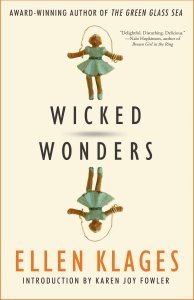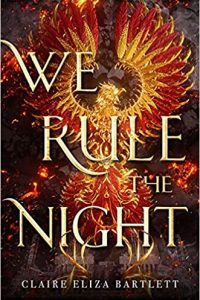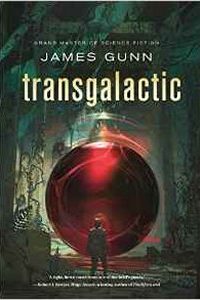Gary K. Wolfe reviews Ellen Klages
Wicked Wonders, Ellen Klages (Tachyon Publications 978-1-61696-261-6, $15.95, 288pp, trade paperback) May 2017
 For decades, it seemed like Ray Bradbury was SF’s default poet of childhood, even though, with few exceptions (such as ‘‘All Summer in a Day’’), the girls in his evocative tales were notable mostly by their absence. I wonder if Ellen Klages is gradually assuming that mantle while redressing the imbalance. It’s not that all the stories in her new collection Wicked Wonders center on young female protagonists, but most of them do, and ‘‘Amicae Aeternum’’ (the most anthologized of her recent stories) reminded me at once of that early Bradbury classic. Each story involves a girl acutely aware of what she loses by traveling into space – the memory of the sun in Bradbury’s tale of a young immigrant to Venus, an entire heart-breaking litany of unrealizable experiences in Klages’s story of a girl preparing to embark on a generation starship – and both girls seem to hail from almost archetypal Midwestern towns. Similarly, Bradbury’s most famous autobiographical evocation of childhood, Dandelion Wine, involved no actual fantasy or SF at all, and the longest story here, the original novelette ‘‘Woodsmoke’’ – is equally nonfantastic in drawing from Klages’s own vivid memories of summer camp, though with a characteristic twist toward the end that lends it an almost speculative tone. Like Bradbury, Klages is notable for the clarity and unstrained elegance of her prose, though she never reaches for the self-conscious rhapsodizing that often characterized Bradbury’s later work. To the extent that Klages’s world is like Bradbury’s, it’s for the most part Bradbury without the boys and without the exclamation points.
For decades, it seemed like Ray Bradbury was SF’s default poet of childhood, even though, with few exceptions (such as ‘‘All Summer in a Day’’), the girls in his evocative tales were notable mostly by their absence. I wonder if Ellen Klages is gradually assuming that mantle while redressing the imbalance. It’s not that all the stories in her new collection Wicked Wonders center on young female protagonists, but most of them do, and ‘‘Amicae Aeternum’’ (the most anthologized of her recent stories) reminded me at once of that early Bradbury classic. Each story involves a girl acutely aware of what she loses by traveling into space – the memory of the sun in Bradbury’s tale of a young immigrant to Venus, an entire heart-breaking litany of unrealizable experiences in Klages’s story of a girl preparing to embark on a generation starship – and both girls seem to hail from almost archetypal Midwestern towns. Similarly, Bradbury’s most famous autobiographical evocation of childhood, Dandelion Wine, involved no actual fantasy or SF at all, and the longest story here, the original novelette ‘‘Woodsmoke’’ – is equally nonfantastic in drawing from Klages’s own vivid memories of summer camp, though with a characteristic twist toward the end that lends it an almost speculative tone. Like Bradbury, Klages is notable for the clarity and unstrained elegance of her prose, though she never reaches for the self-conscious rhapsodizing that often characterized Bradbury’s later work. To the extent that Klages’s world is like Bradbury’s, it’s for the most part Bradbury without the boys and without the exclamation points.
From other perspectives, of course, Klages is nothing like Bradbury at all. She writes relatively few straight SF stories; other than ‘‘Amicae Aeternum’’ the only other real example here is ‘‘Goodnight Moons’’, a moving tale of an astronaut whose unexpected pregnancy strands her on the moon with a baby who can never return to Earth (‘‘Mrs. Zeno’s Paradox’’ plays with SF ideas, but is basically an absurdist comedy set in a ladies-who-lunch Dorothy Parker milieu). When Klages does evoke the decades of her own childhood, she relies not on nostalgia so much as on meticulous research of the sort we see in her young-adult novels and in this year’s Passing Strange. In ‘‘Gone to the Library’’ an eight-year old girl befriends a mentally challenged neighbor in early 1950s Princeton, and when Grace Hopper shows up to explain to the girl about the math of magic number squares (which the girl hopes to use to save her new friend from institutionalization), you can bet that Klages made sure that Hopper was in that place at that time. Similarly, the 1960- ish setting of ‘‘The Education of a Witch’’ – about a rebellious young girl, unnerved by her mother’s pregnancy, who identifies strongly with Malificent in Disney’s Sleeping Beauty to the consternation of the adults around her – is evoked not only by details of the film, but by Shell service station signs and the almost exotic experience of going to a drive-in movie for the first time.
‘‘The Education of a Witch’’, which vies with ‘‘Woodsmoke’’ as the best-written story in the collection, also exemplifies another characteristic Klages technique, which is the restrained, judicious, and strategic use of magic. You need to pay attention to recognize that the story is a fantasy at all, and in ‘‘Echoes of Aurora’’ – which evokes an intense relationship that lasts exactly one summer, the real nature of the character of Aurora is only gradually revealed. Even when the fantasy takes us into distinctly surreal other worlds, it’s grounded in meticulously detailed mundane settings. In its frame story, ‘‘Singing on a Star’’ is simply about a six-year-old’s first sleepover with her friend down the street, but when the friend’s favorite record transports them to a bizarre, dark world called Farlingten, it becomes a truly unique exploration into – what, first-grade noir? ‘‘Friday Night at St. Cecelia’s’’ draws both on legends of Queen Mab and on popular board games like Clue and Monopoly for its fantasy world, but is grounded in a Salingeresque evocation of trying to fit in at a girls’ boarding school. ‘‘Caligo Lane’’ is set in the same 1940s San Francisco as Passing Strange – and features one of the characters in that novella, with her magical origami becoming mostly a function of real historical geography. ‘‘Hey Presto!’’ also features a Passing Strange character in a cleverly plotted tale of a science-minded young girl combining her knowledge with her remote father’s stage magic to foil a villain who might have stepped out of a pulp magazine – but it features no direct fantasy at all. The most unusual stories here, in that they involve European period settings, are both good examples of Klages’s wry comic imagination. ‘‘Sponda the Suet Girl and the Secret of the French Pearl’’ is a parody of high fantasy quests which nevertheless draws some of its best comic effects from real chemistry and food research, while ‘‘Household Management’’ is a slight and subtle jape at Holmes tales. Klages closes the collection with ‘‘The Scary Ham’’, a hilarious non-fiction piece based on an improvisation she found herself doing at a delayed Nebula Awards banquet a few years ago. It suggests that, along with the carefully structured story techniques she’s learned from writers as diverse as Bradbury and Cheever, part of Klages’s storytelling DNA derives from old radio raconteurs like Jean Shepherd or Garrison Keillor.
Gary K. Wolfe is Emeritus Professor of Humanities at Roosevelt University and a reviewer for Locus magazine since 1991. His reviews have been collected in Soundings (BSFA Award 2006; Hugo nominee), Bearings (Hugo nominee 2011), and Sightings (2011), and his Evaporating Genres: Essays on Fantastic Literature (Wesleyan) received the Locus Award in 2012. Earlier books include The Known and the Unknown: The Iconography of Science Fiction (Eaton Award, 1981), Harlan Ellison: The Edge of Forever (with Ellen Weil, 2002), and David Lindsay (1982). For the Library of America, he edited American Science Fiction: Nine Classic Novels of the 1950s in 2012, with a similar set for the 1960s forthcoming. He has received the Pilgrim Award from the Science Fiction Research Association, the Distinguished Scholarship Award from the International Association for the Fantastic in the Arts, and a Special World Fantasy Award for criticism. His 24-lecture series How Great Science Fiction Works appeared from The Great Courses in 2016. He has received six Hugo nominations, two for his reviews collections and four for The Coode Street Podcast, which he has co-hosted with Jonathan Strahan for more than 300 episodes. He lives in Chicago.






